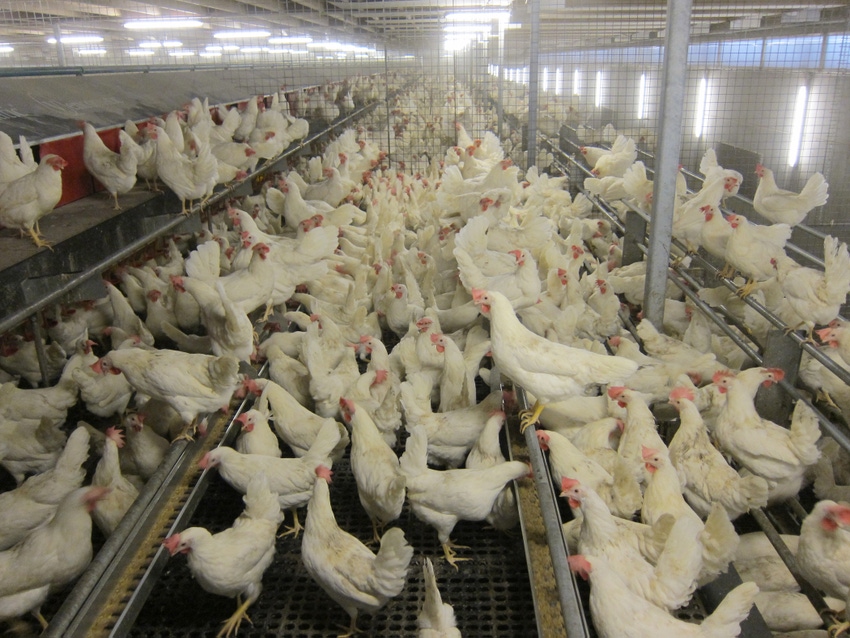EIC encourages air quality research on cage-free housing
Egg farmers have tried variety of cage-free housing designs and equipment, but air quality still a challenge in these systems.
July 1, 2019

The Egg Industry Center (EIC) at Iowa State University has released a challenge grant to encourage teams of researchers to work collaboratively to solve air quality challenges created by cage-free laying hen housing.
According to the announcement, the Egg Industry Center challenge grant awards up to five teams $5,000 and a chance to submit a research proposal addressing cage-free air quality for up to $100,000. At least one member from the team is required to travel to the 2020 Egg Industry Issues Forum in Des Moines, Iowa, to present their research proposal to EIC’s advisory board. Challenge grant pre-proposals are due Aug. 16.
“The Egg Industry Center is delighted to be a catalyst to help the industry find solutions to this important challenge,” said Susan Lamont, interim director of the center and C.F. Curtiss distinguished professor of animal science at Iowa State University. “We hope to encourage researchers to reach out to the industry and spend time really understanding this issue, then find a viable scientific solution to benefit both animals and workers.”
EIC’s regular grant program launches a call for proposals each fall. The challenge grant process is intended to enhance the purpose of the larger grant program by focusing on finding solutions to an issue of critical importance to the industry. The challenge grant process starts earlier, giving researchers additional time to collaborate on the topic and interact with industry to identify promising paths toward useful research results, the announcement said.
The topic for the challenge grant was determined by the EIC advisory board.
The Coalition for Sustainable Egg Supply research project compared conventional cages, enriched colonies and cage-free aviaries and found that the dust and ammonia levels within the cage-free systems are often undesirable. The demand for cage-free eggs has increased since the study was published, and although egg farmers have tried a variety of cage-free housing designs and equipment, air quality is still a challenge, EIC said.
The EIC grant program has funded more than $1 million in research on various issues since it started its grant program in 2013. This research has helped advance knowledge on disease transmission, genetic resistance, keel bone abnormalities, new market development and more.
EIC is focused on providing value to the U.S. egg industry through information dissemination and collaborative research efforts. The center is committed to ensuring that the current and future needs of the egg industry can be answered through sound science-based information.
Source: Egg Industry Center at Iowa State University, which is solely responsible for the information provided and is wholly owned by the source. Informa Business Media and all its subsidiaries are not responsible for any of the content contained in this information asset.
You May Also Like


